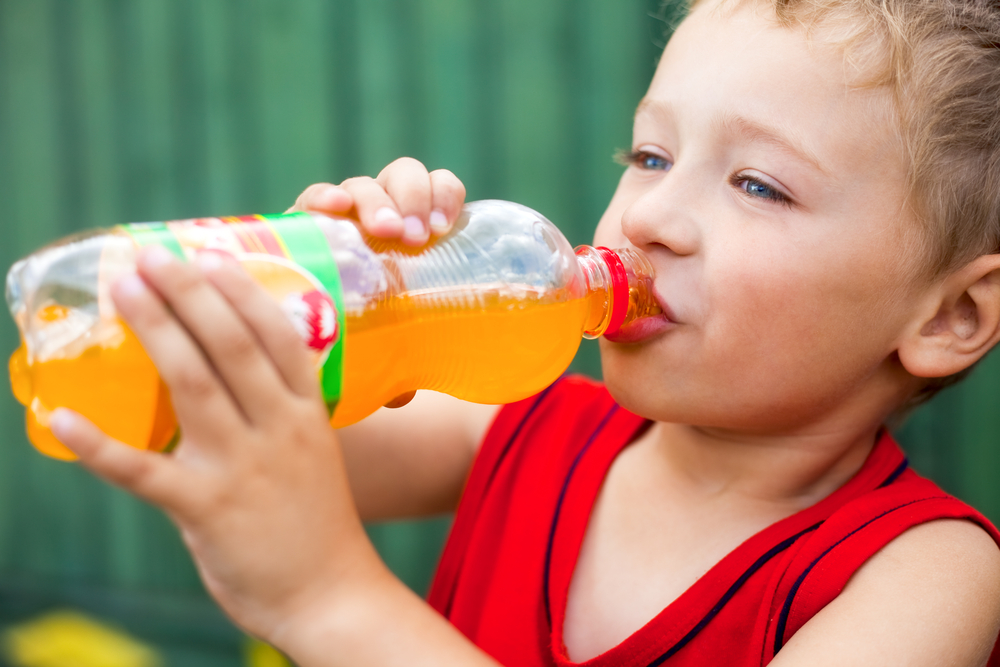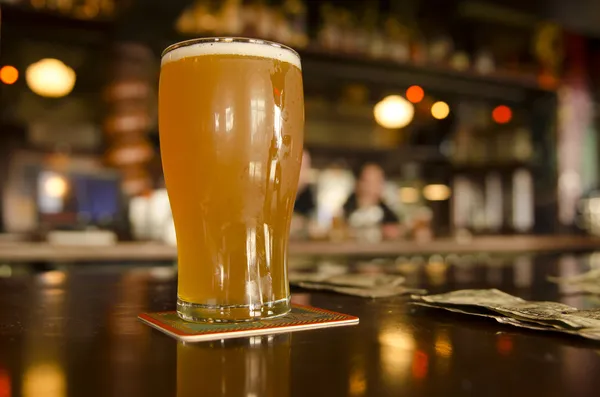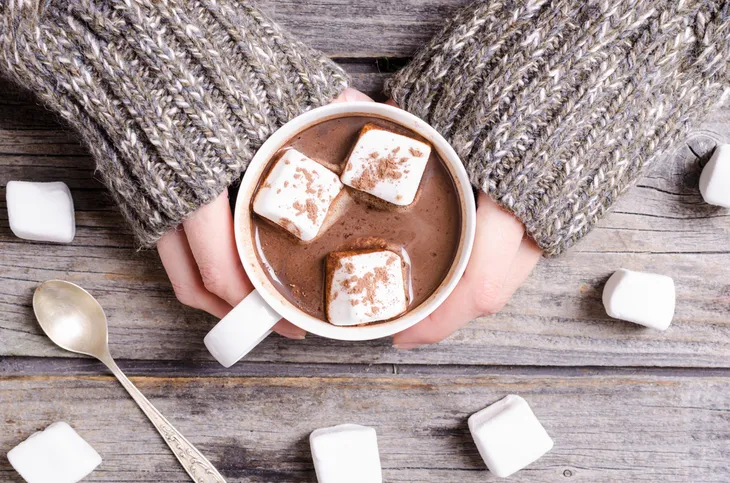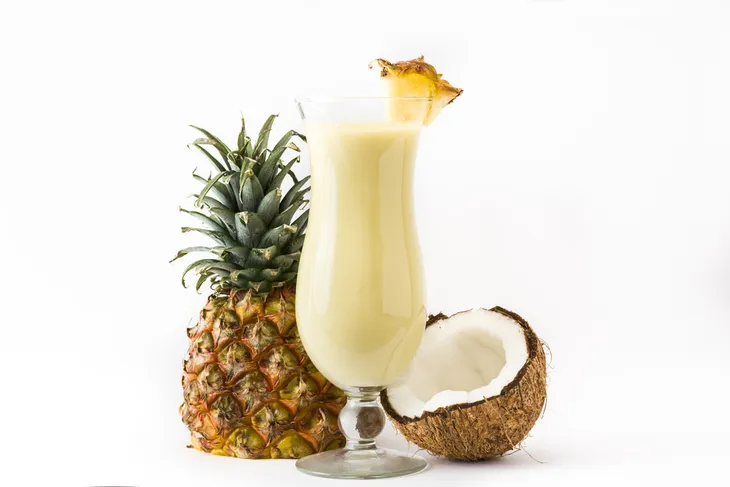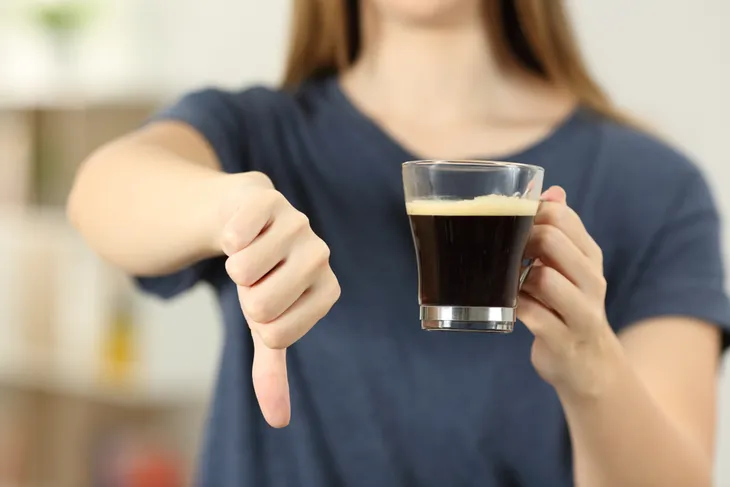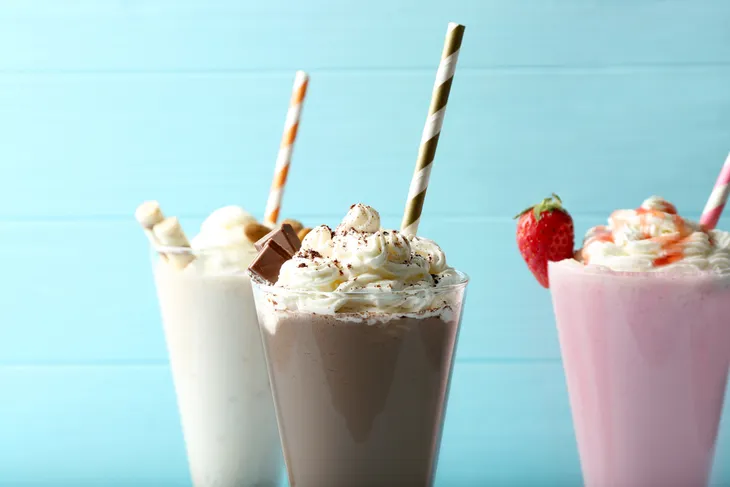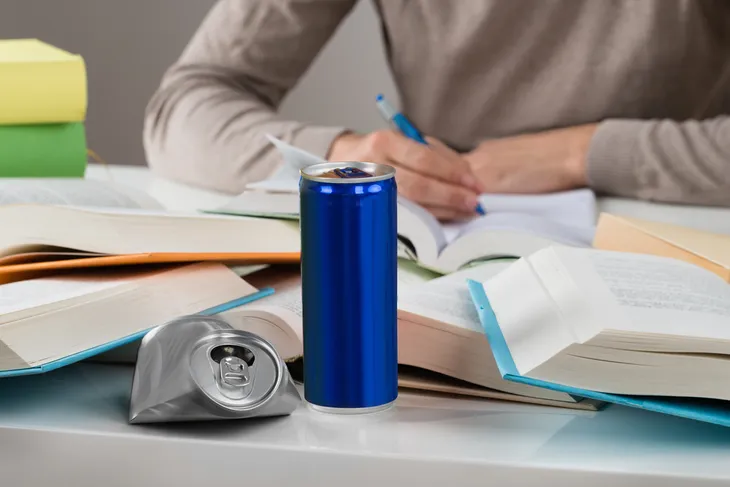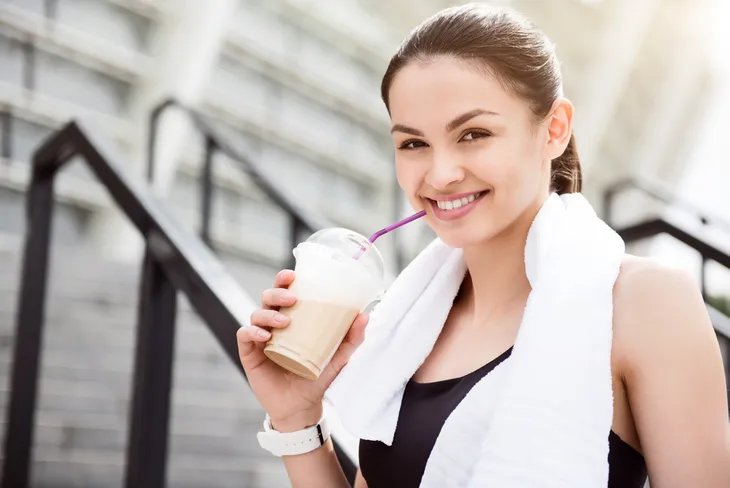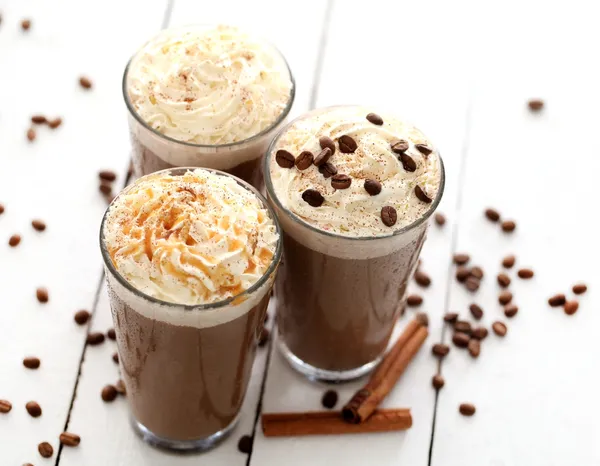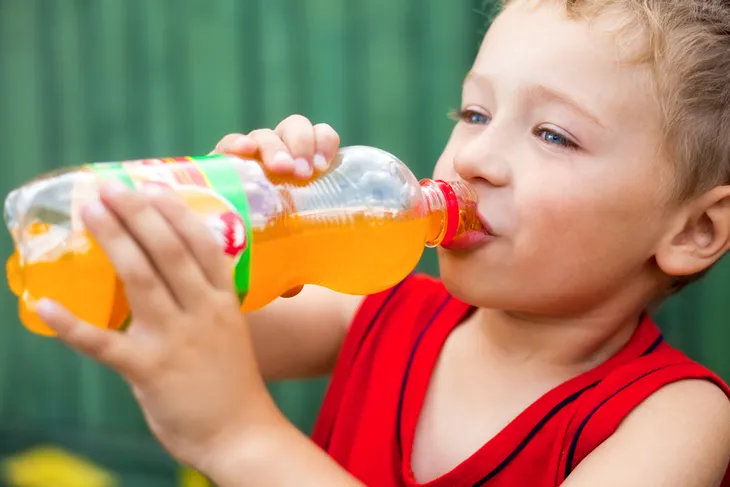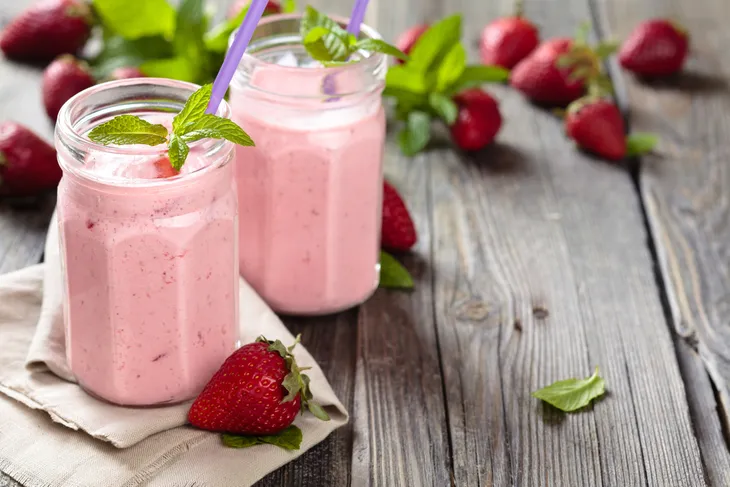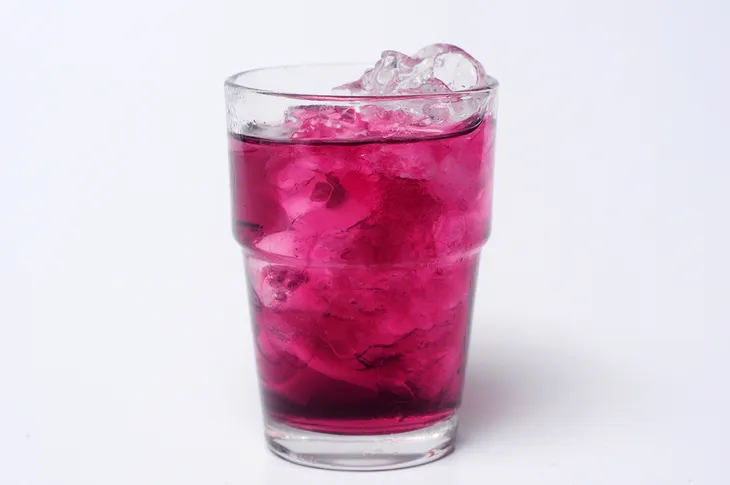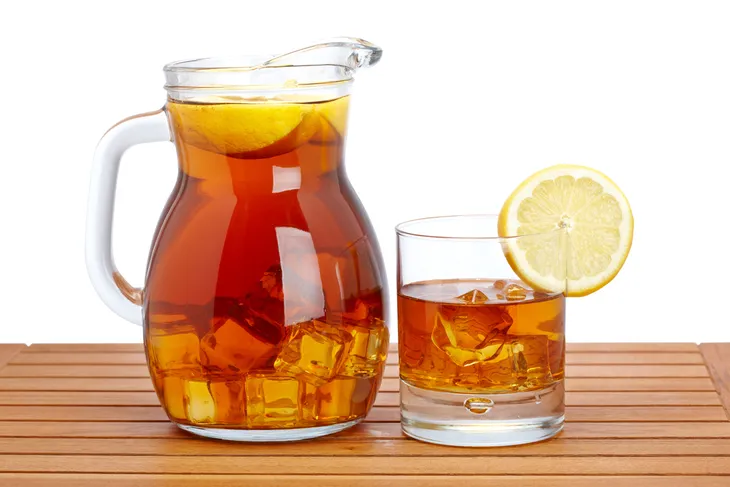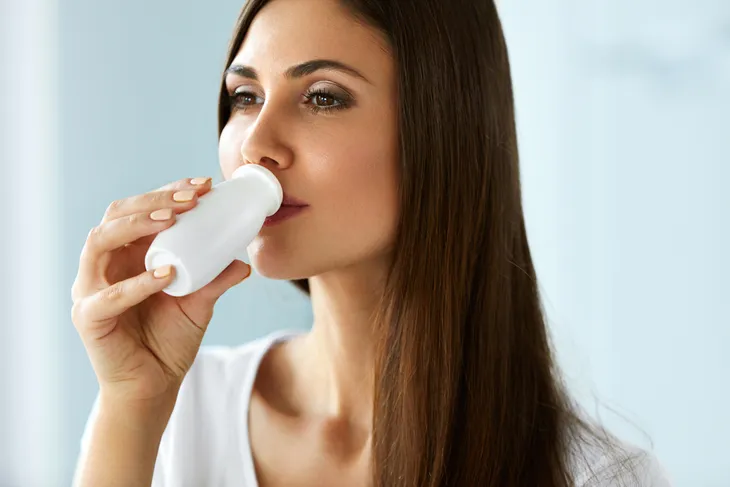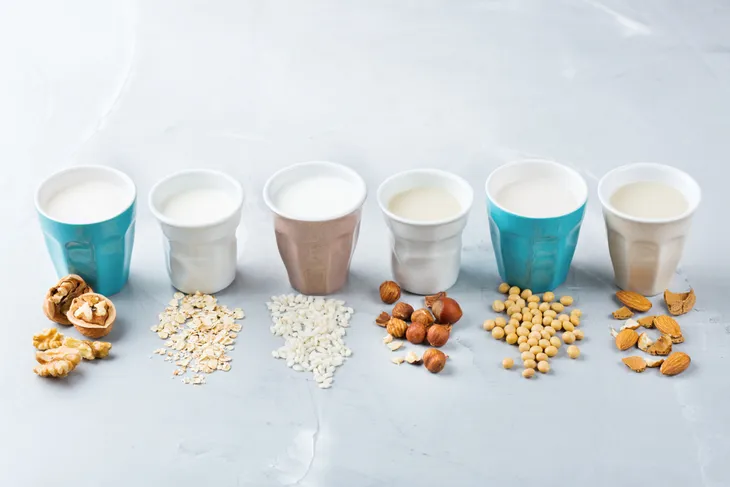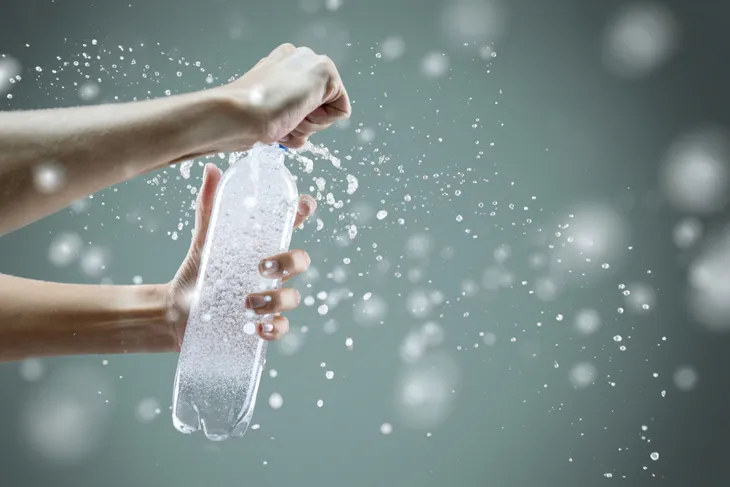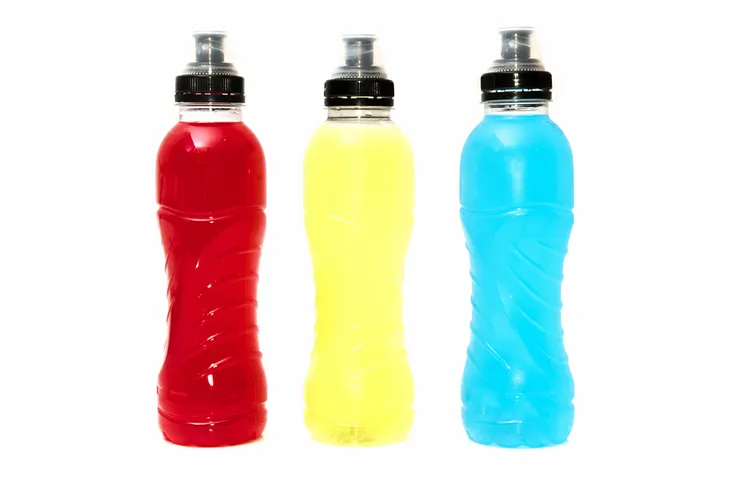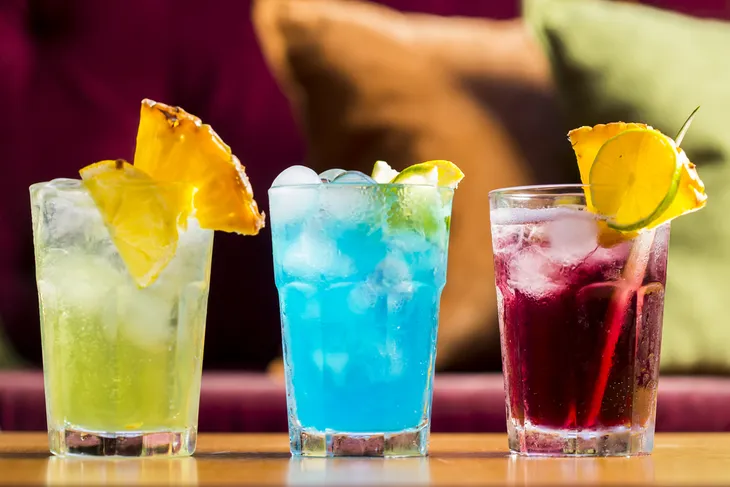We often don’t think of drinks as something that makes us overweight or unhealthy because we typically associate weight gain with eating, but there are plenty of popular beverages out there that can pack on the pounds without much effort! You might be super surprised by some of these, too. Did you realize that your breakfast smoothie or mid-day coffee drink could contain more than 500-calories per cup? In order to lose weight, we need to burn more calories than we consume, but if we’re guzzling down half of our daily caloric intake in a frothy espresso or fizzy orange soda, then the goal gets pretty unattainable.
People who are trying to lose weight or maintain a healthy weight should reconsider cutting the following beverages from your diet, because these are the worst every day drinks in North America…
Want diet & nutrition content delivered straight to your inbox? Sign up for our exclusive diet & nutrition newsletter!
Beer
Mmmmmmmmmmm beer! There’s nothing like a cold, tall pint after a long hot day at work. However, when you consider that most beers top the charts at almost 200 calories a bottle—not to mention all of the empty carbohydrates from the hops and barley, you might consider opting for a glass of red wine.
Infused Waters
If you don’t favor the flavor of plain old water after a workout, you are doing yourself a grand disservice by reaching for a flavor-infused water. Sure, they may pack a few more vitamins than regular H2O, but the “infusion” mostly comes from food dye and added sugars. Some of these bottles of infused waters can have up to 30-grams of sugar! For a healthier (and cheaper) option, buy a bottle of water and add a slice of fresh lemon, orange, grapefruit, or lime.
“Even if they don’t have added sugar, they have to be flavored somehow,” Ilyse Schapiro, RD, to Health.com. “This means they may contain artificial sweeteners or Stevia. And just because it uses a more natural calorie-free sweetener doesn’t make it healthy.”
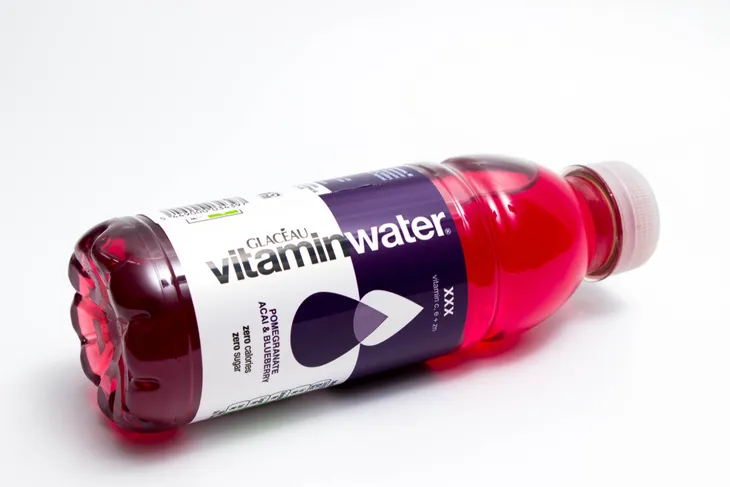 LMWH / Shutterstock.com
LMWH / Shutterstock.comHot Chocolate
Alright, hot chocolate made at home, on the stove, with low fat milk and a sprinkle of mini marshmallows isn’t going to kill you every once in a blue moon. However, that large blended hot cocoa—you know the one that you purchase regularly at your local coffee shop? The one topped with a half container of whipped cream? You’re probably better off scarfing down a half dozen donuts. “A typical 16-ounce mug with whipped cream packs over 400-calories and 43-grams of sugar–more than a can of cola,” writes Health.com.
Instead, stick to hot beverages with single flavor profiles—such as coffee, hot apple cider (with no added sugar), or hot cocoa (once in a while) blended with water and pass on the topping.
Pina Colada
It’s difficult to imagine lounging on the beach without a piña colada in hand. When it comes to cocktails, this coconut-cream mixed drink is the worst—at a whopping 880 calories, and oftentimes that’s not even counting the shot of rum.
Espresso Drinks
Oh, everyone loves a coffee-dessert hybrid. It really is like enjoying a blast of caffeine and a slice of cake all in one sitting. However, when you order one each morning on your way to work, you’re actually better off grabbing a regular coffee with low fat milk and a small treat (i.e., like a rice crispy square or a low fat muffin) if you’re trying to watch your waistline.
Chocolate Milkshake
It’s very American to order a milkshake with your take out burger. However, think of all of those hard-earned calories you burned off at the gym earlier this week. Well, you’re packing back on more than half of your day’s caloric intake in just one small chocolate shake!
Energy Drinks
Energy drinks have been around for a long, long time now. While they are definitely an acquired taste and not all that popular these days, there are still many people who drink them. It’s mostly young people like students who are looking for that added boost after a late night or to help them focus, or even gym-goers who are struggling to muster up the energy to workout after a long day at the office.
While most people think these canned drinks will give them that much-needed boost of energy (I mean, they are called energy drinks after all), but before pounding it down, consider that it largely contains natural and artificial sweeteners, plus an impressive collection of unpronounceable additives (that are also dyes and sugar). These are all things that are unhealthy for us and will contribute to us actually feeling sluggish!
A study published in the journal JAMA also found that “just one Rockstar energy drink raised healthy people’s blood pressure and norepinephrine (a stress hormone) levels more than a placebo drink,” writes Health.com. Most of us don’t actually work out hard enough to merit an electrolyte drink post-workout, but if you do try a zero-calorie electrolyte water instead.
Fruit Punch
I know the label says “juice drink” or “juice cocktail,” or it might even entice you by stating it’s made with “real fruit,” but that doesn’t mean the drink is mostly made up of fresh fruit juice. In the case of fruit punch it’s actually the opposite. Bottled fruit punches are typically nothing more than brightly-colored sugar water with just an inkling of real fruit juice so they can slap it on the label. For a truly healthier drink choice, look for 100 percent juices or drink sparkling water and add a splash of real fruit juice.
This also goes for apple and grape juice! Health.com warns that 1-cup of grape juice contains 36-grams of sugar and a cup of apple has 31-grams of sugar. This is pretty darn close to the sugar content in a soda which sits at about 44-grams, depending on the variety.
Frozen Mochas
I know they’re yummy, and when you’re staring at the sign for a creamy-chocolatey, coffee drink in the face, sometimes a plain old cup of Joe just won’t do. However, your fat cells will binge on the cream or 2-percent milk concoction, blended with chocolate syrup and whipped cream that takes the calories way past 800 per glorious cup!
Iced Frappuccino Coffee
Frappuccino, mochaccino, caramel macchiato—whatever you call you’re favorite, icy, coffee-flavored beverage, chances are it contains a whopping 800 artery-clogging calories and a ton of saturated fat—particularly if it’s made with 2-percent milk, cream, chocolate or caramel drizzle, and whipped cream. Why did you think you’re caffeine buzz was immediately followed by a sugar crash?
“Most people are blown away when they look at the calories and sugar in their lattes and Frappuccinos,” says Ilyse Schapiro, RD, to Health.com. Let’s take a quick look at the Starbucks menu…a grande white chocolate mocha Frappuccino has 61-grams of sugar. That means nearly a third of this drink is made of up of pure sugar! No wonder it’s so tasty! A slightly healthier option is a vanilla latte, but still contains about 35-grams of sugar for a medium.
Orange Soda
What exactly is the benefit of drinking orange soda? I ask because it’s one of the most popular sodas among kids and adults. But unless you consider empty calories from sugar a redeeming quality; your regular orange soda for lunch habit is bound to leave you overweight and zapped of energy due to all of that extra sugar.
Smoothies
It’s a certainty that fruit is good for your body, but when you take it in a 32-ounce smoothie form; you’re often getting far more than mere fruit. It surprises many smoothie aficionados that many blended fruit shakes contain more than 600-calories for a plain old fruit smoothie, and that’s not considering that some promise extra protein in the form of peanut butter or protein powders that are really just high in sugar and fat.
Grape Soda
Believe it or not, the fruitier the soda tastes—typically the higher the sugar content. And no soda is quite as syrupy as grape soda. Soaring at almost 100-grams of sugar per bottle or can, you can see why you’re not doing your teeth or your waistline any good by guzzling down this grape-flavored soda.
Sweetened Iced Tea
While iced tea might seem like a harmless choice, especially on a hot summer day, it’s actually loaded with sugar. Even though it has the word “tea” in it which is a healthy beverage full of disease-fighting antioxidants, sweetened iced tea is far from healthy. Health.com doesn’t name the specific brand, but states that it’s “popular” and that 1-bottle of it’s sweetened iced tea contains 30-grams of sugar. Yikes!
If you want a healthier option, you can make your own unsweetened iced tea, or ask for unsweetened at a restaurant. This way you know exactly how much sugar is going into it. If this is just too plain for your liking, you can add 1-teaspoon of sugar which is still far less than what a store-bought bottle would have.
Flavored Coconut Water
Flavored coconut water sounds like this super healthy, trendy choice, and it is, but we should be wary about it. People are raving about coconut water because it’s packed with electrolytes, like potassium, but the amount they contain is excessive. Health.com says a 16-ounce container of coconut water has more than 25-percent of the mineral than the daily recommended amount. The average person doesn’t necessarily need this many electrolytes a day.
“Electrolytes are minerals that help keep the body’s fluid levels in balance so that the body is hydrated,” says Chicago-based nutritionist Renee Clerkin, RD. “You probably don’t need to sip coconut water all day, but it can be helpful if you’re sweating a lot during the summer or activity.” The healthiest alternative here is to just be aware of what you’re drinking, and the fact that you’re probably paying a lot of money for something your body doesn’t really need. There’s no harm in drinking plain coconut water, but if it’s flavored, you should be reading the label to check how much sugar was added to give it that fruit taste. Some 16-ounce containers can have more than 30-grams of sugar.
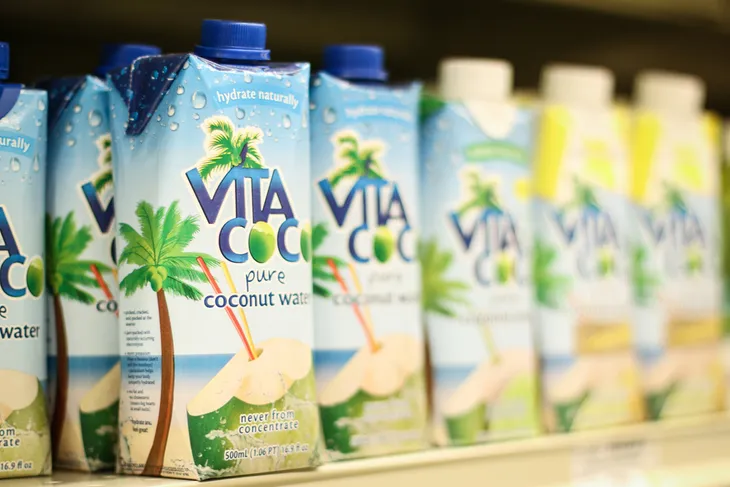 Nicole S Glass / Shutterstock.com
Nicole S Glass / Shutterstock.comYogurt Drinks
We tend to associate yogurt with healthy foods because they can be a good source of protein or probiotics which seem to be all the rage right now. Yes, probiotics are good for us, particularly our gut, but there are many types of yogurts that are not good for us because they’re loaded with sugar. Some people don’t like eating yogurt, so believe it or not, there are yogurt drinks on the market that make eating yogurt so much easier.
A lot of these yogurt drinks are geared towards kids, but there are many adults to drink them as well. While there are definitely some yogurts that are healthy, consumers need to do their own research and read labels. Any flavored version of a yogurt will have added sugar to make it taste better. Health.com warns that a small bottle of yogurt can have up to 26-grams of sugar and contain “multiple forms of the sweet stuff, including sugar, fructose, and fruit puree or juice.”
The best choice when it comes to yogurt is picking a plain version and sweetening it up yourself. You can add real fruit and sprinkle a little bit of cinnamon on top or even some honey. If you still can’t bring yourself to enjoy a cup of plain yogurt, be conscious to always choose low-fat or nonfat varieties.
Sweetened Non-Dairy Milks
If you’re like me, you’ve made the switch from cow’s milk to a more plant-based option like almond, cashew, coconut, or soy milk. However, while these brands say they are a healthier option, just like any other grocery purchase, we still need to do our own research and check the nutrition label. Some of these nut milks can be super high in sugar. The key with these beverages is to buy the unsweetened option. Even the ones that say “original” or “plain” can have added sugars, so your best bet is to always buy unsweetened.
A lot of them will come in different flavors to entice people who might not like the original taste, but don’t fall for it! “A glass of chocolate plant-based milk can have the same amount of sugar as a handful of cookies or a chocolate bar,” says Ilyse Schapiro, RD, when talking to Health.com.
Sparkling Water
People who are trying to be health conscious might opt for a soda or tonic water over a sugary glass of coca-cola. Even though it might not have as much sugar as their counterparts, sparkling waters can still contain sneaky amounts of aspartame, acesulfame-K, sucralose, and saccharin. Health.com points out that a 12-ounce bottle of tonic water actually has 124-calories and 32-grams of sugar. If you think about it, that’s not much better than a coke which has about 182-calories and 44-grams of sugar in a similar sized bottle.
Sports Drinks
Sports drinks are really popular among kids and adults, especially in the summer because they’re known for replenishing electrolytes. However, the misconception is that we all need to be replenishing our electrolytes every time we workout, but that’s not the case. Unless you’re a high-performance athlete who is working out extremely hard and burning lots and lots of calories, you will do just fine drinking good old fashioned water. Good Housekeeping writes that a half-hour on the elliptical does not warrant a 24-ounce of flavored Gatorade.
While these drinks are designed for athletes and can be useful in some cases since they contain a lot of sugar and minerals, they aren’t really for the average person. Most people just drink them for their sugary flavor which is definitely not healthy.
Pre-Mixed Alcoholic Drink
These types of drinks are super popular in the summer months and for people who don’t necessarily like the taste of beer or wine. While these beverages make drinking fun and easy for those of us with a more picky palate, they are super dangerous when it comes to our health. This is because they are loaded with sugar. Why do you think they taste so good?! Good Housekeeping refers to them as a “hangover in a bottle” because they are loaded with preservatives and added sugar which will only make you more dehydrated than you already are due to the alcoholic content.
We understand that cutting these types of drinks out completely is just not practical. If you’re someone who loves these types of drinks, then try making your own at home. You should avoid using a mixer at all and just top the alcohol off with a club soda and some real fruit to give it some sweetness. It won’t be the exact same as those sugar pre-mixed drinks, but trust us, you’ll be thankful the next day.
